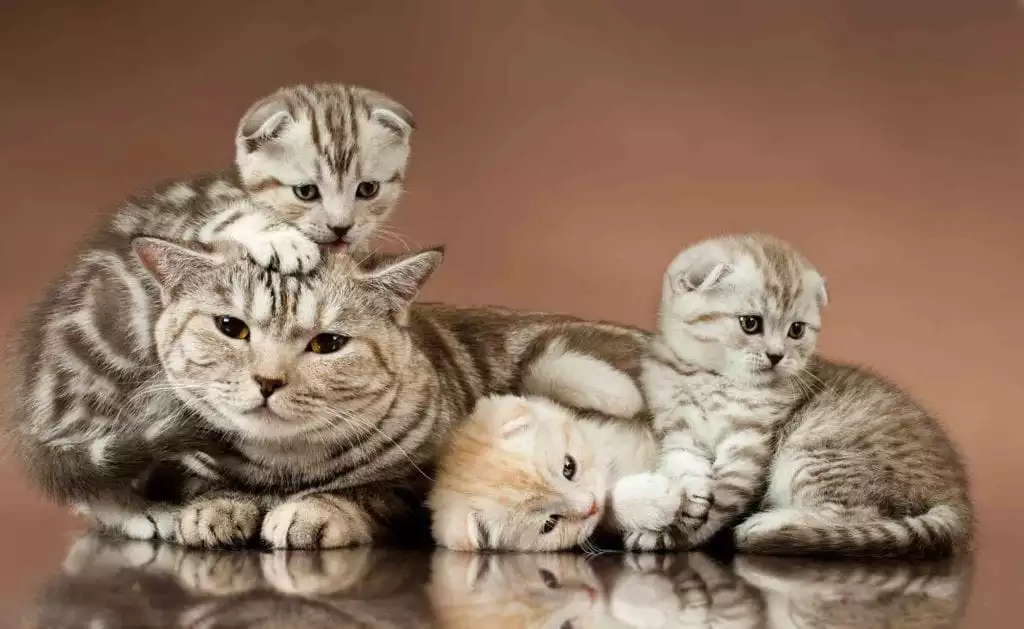 Ah, the miracle of life! At Schertz Animal Hospital, we think that what makes life even more wonderful is when you are expecting little, fuzzy faces and whiskers!
Ah, the miracle of life! At Schertz Animal Hospital, we think that what makes life even more wonderful is when you are expecting little, fuzzy faces and whiskers!
Cats are pros at having kittens, but when it is your cat having them, it is only natural to be a little apprehensive about the whole process. Understanding feline gestation and the process of having kittens can help you feel more confident and steer clear of any mishaps.
Growing Little Furballs
Cats tend to become reproductively mature early in life, when they first reach about 80% of mature body weight. This typically happens between 4 and 8 months of age.
Because cats are geared to birth kittens in the warmer months of the year, they tend to cycle seasonally, going through estrus in spring and early fall, when the days are longest.
Once a cat has been bred, she will gestate her kittens for approximately 60 days. During this time it is important that she receives good care, including:
- Adequate nutrition containing extra calories (diet formulated for growth)
- Good parasite control (we can help you select a safe flea preventative to protect Mom and her kittens, once born)
- A warm, safe retreat for resting
If you are planning to breed your cat, it is important to update her vaccinations prior to conception. We cannot safely vaccinate her while pregnant, and it is imperative to protect her and allow her to pass this level of immunity to her kittens.
What to Do When Your Cat Is Having Kittens
About 60 days after conception, you can expect kittens at any time. Restlessness, nesting behavior, excessive grooming, crying, or panting may mean that labor is impending. Be sure to provide a quiet, comfortable area for her to queen (although, don’t be offended if she chooses her own area).
There are three stages of labor:
Stage 1 – This is early labor. Mother cat will know something is happening, but it may not be particularly obvious to you. This is the stage where she may act restless or vocalize. Try not to disturb her too much.
Stage 2 – Stage 2 is active labor, resulting in the birth of kittens. It may last up to 24 hours, especially if Mom becomes anxious. Kittens are typically born at 30-45 minute intervals. Watch carefully to be sure that there is no bloody discharge or unproductive straining that goes beyond 30 minutes (call us if so). Once the kittens are born, the mother will break the membrane surrounding them and stimulate them to breathe by licking. She may need your help if she has the kittens very quickly.
Stage 3 – This stage involves the passing of the placenta. Each kitten should have a placenta, and they will likely be passed in between kittens. Keep count so that all placentas are passed and try to prevent the mother from ingesting them, as this can cause digestive upset.
Once the kittens have safely arrived, allow your new feline family a little space and time. Observe from a distance to be sure that each kitten is latching onto the mother and is getting milk. Also, make certain that the area is warm and free of drafts, and that the mother cat has access to fresh water and plenty of food (she will still need the calories).
As long as everyone is growing and seems to be active and happy, we would like to see them within a few days of birth. We will also need to see your kittens around 6 weeks of age for their first wellness visit.
Almost nothing is more entertaining than having kittens and watching a litter grow, learn, and play. Experiencing the wonder with your babies as they grow is an unforgettable experience, and well worth the effort and anxiety along the way.
Recent Posts
About Us
We know that choosing the right veterinarian for your pet (and you) can be a challenge. Yet, with our stress-free handling, our long-term, experienced staff, and a state-of-the-art facility, we make the decision an easy one!
